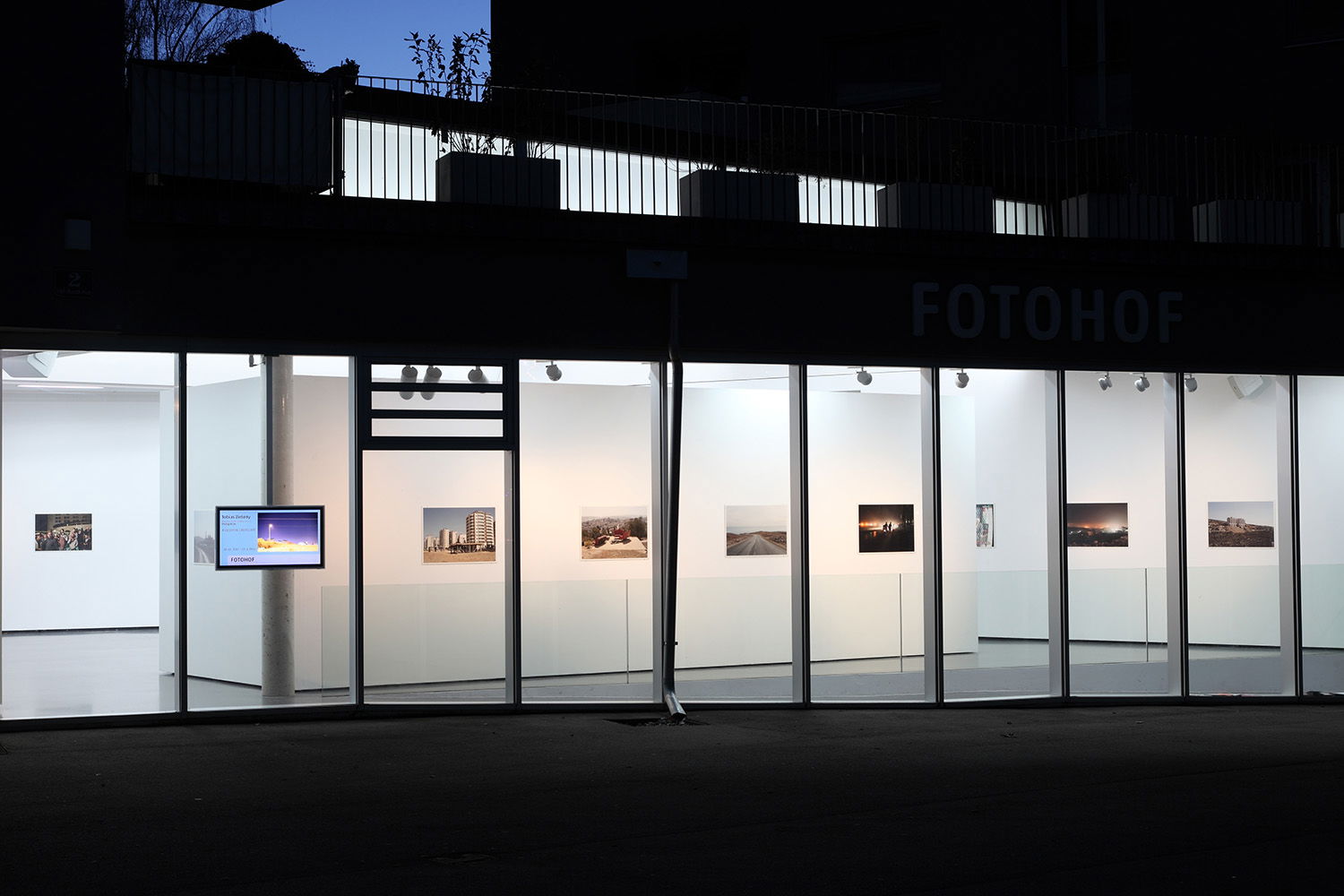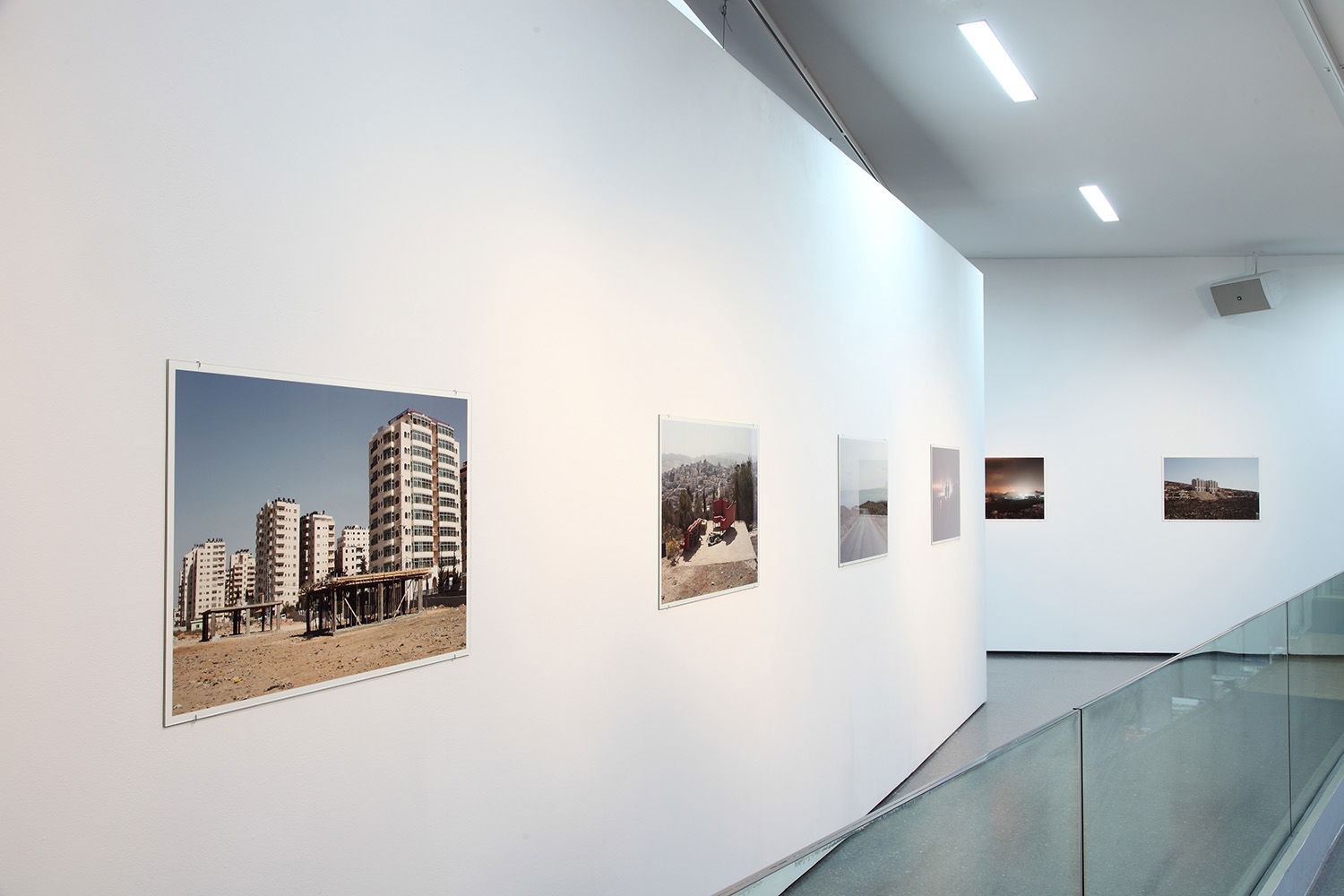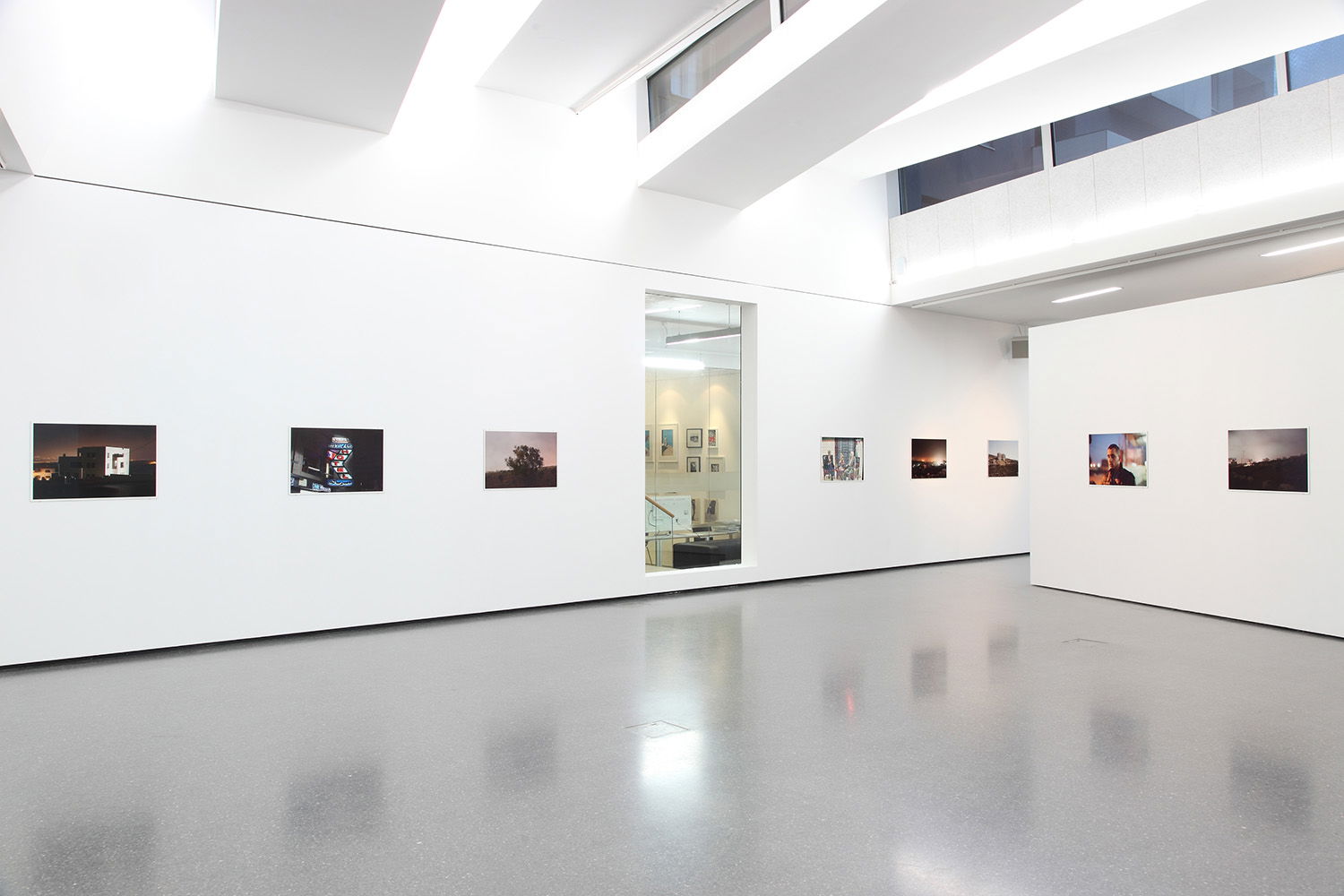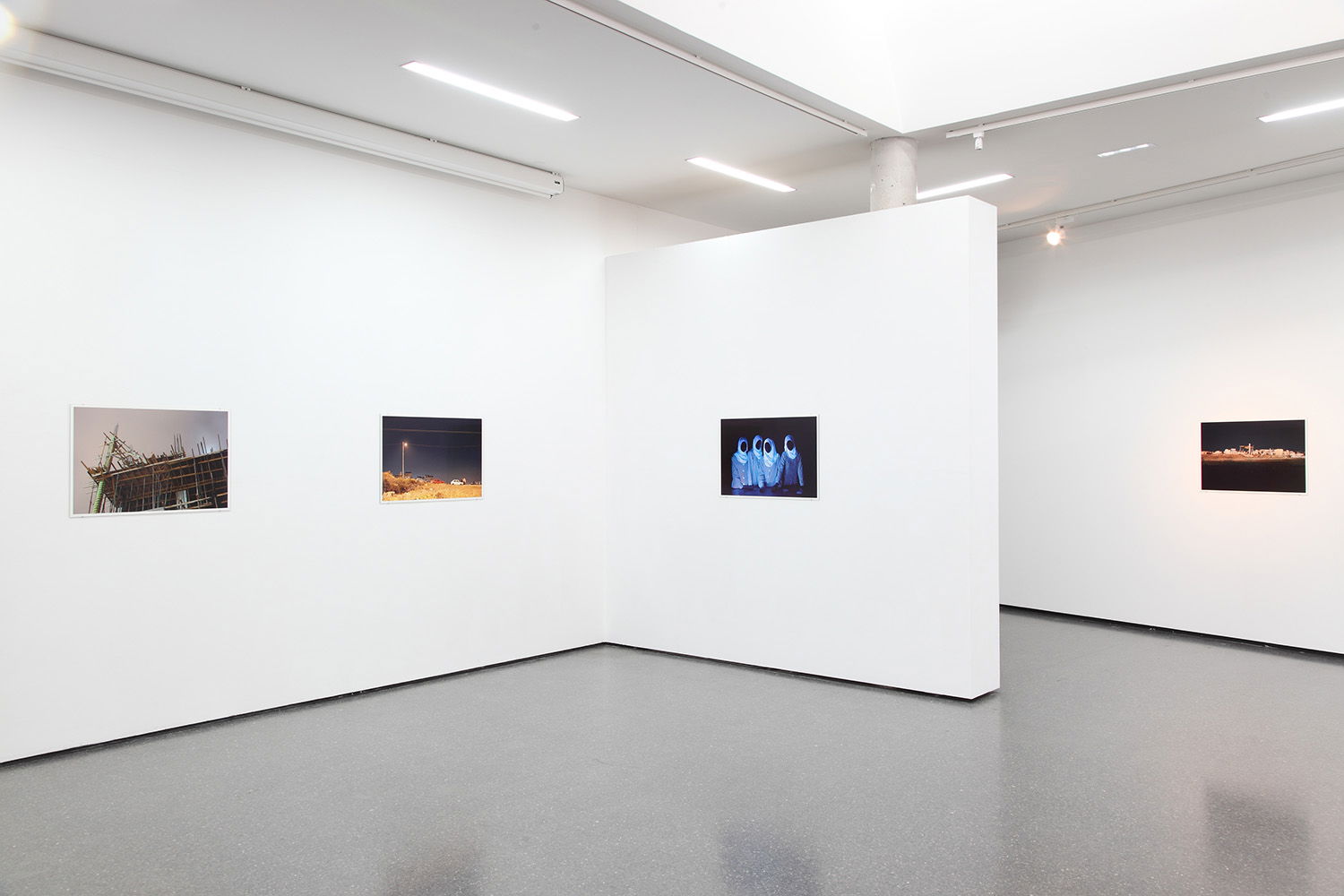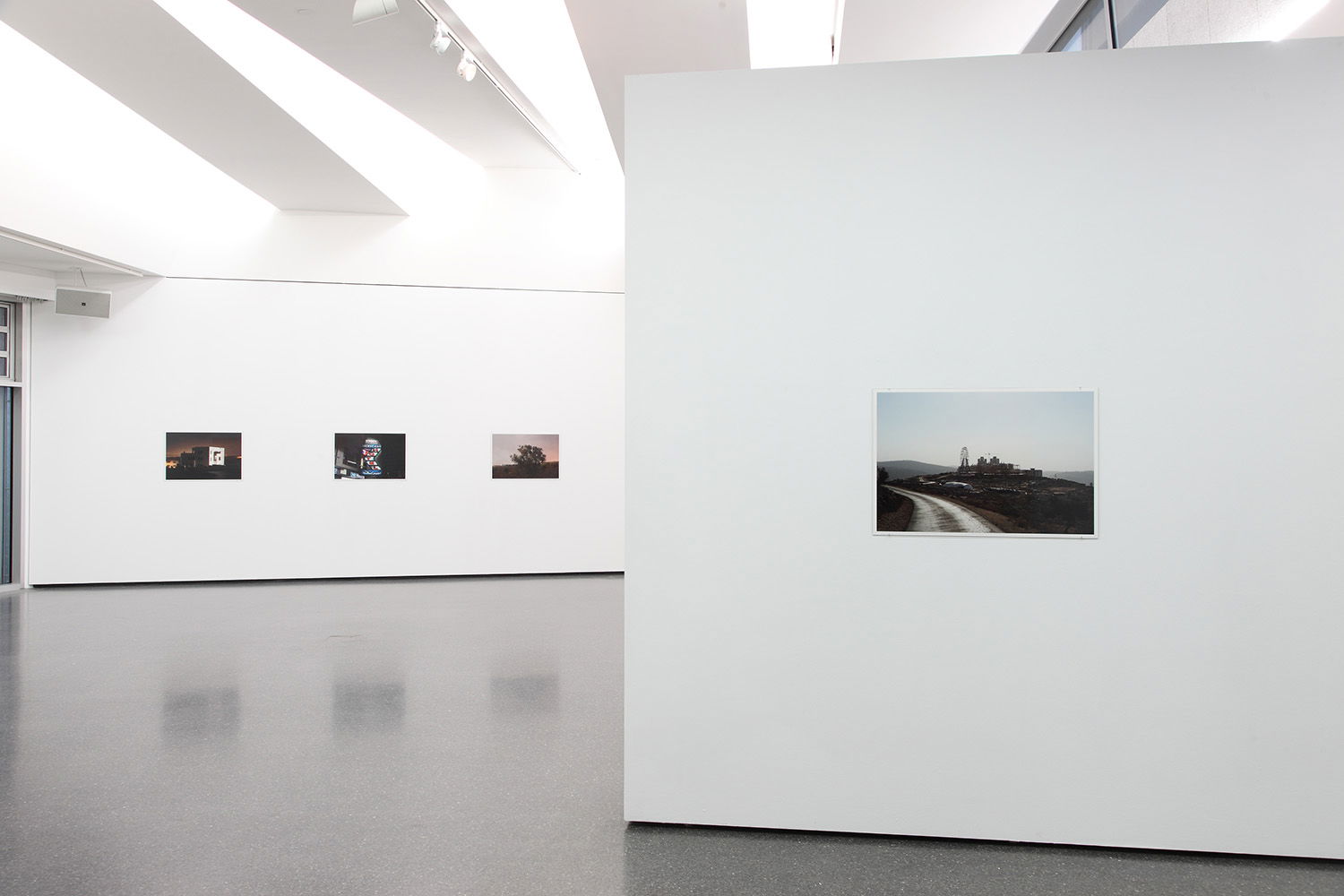Tobias Zielony, Philip Rizk
A colonial landscape
FOTOHOF is showing a joint project by Tobias Zielony and Philip Rizk, both of whom represented Germany at this year’s Venice Biennale. Developed in Ramallah in autumn 2013, this is Zielony’s photographic study of the extremely precarious political situation in Palestine. His first explicit landscape work is all about the West Bank as a place where conflict rages over land, water, and infrastructure, but also questions of identity.
The title of the exhibition is based on the textual work by Philip Rizk entitled “A Colonial Landscape“. At Tobias Zielony’s request, the German-Egyptian filmmaker and author Philip Rizk created a text to accompany the photographs that has been incorporated into the exhibition as a literary work in its own right. The text, written independently of the photographic works, addresses what is often merely subtly hinted at in Tobias Zielony’s photographs: namely, seeking out the stories of individual people inseparably linked with a form of neo-colonisation that individualises the region’s inhabitants through consumerism and loans, undermining any sense of political solidarity.

Philip Rizk, who works as a freelance filmmaker and author in Cairo, wrote the essay entitled 2011 is not 1968: A letter to an onlooker, which appeared in a number of publications. Between 2011 and 2013 he was an active member of the non-profit media collective Mosireen. In his latest feature film “Barra fi l shara“ (Out on the Street), completed in 2015 in collaboration with Jasmina Metwaly, he addressed socio-critical issues such as corruption, police violence and workers’ rights in Egypt through nine non-professional actors. For his work at FOTOHOF the artist has turned his encounters with inhabitants of the West Bank and his own personal experiences, jotted down as diary entries, into a literary sound installation.
